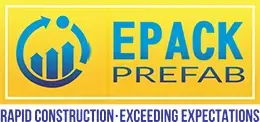The Micro, Small, and Medium (MSME) sector of India is continuously growing, thanks to initiatives like Make in India. For this sector to keep this growth, it is important for it to diversify its technology. This is especially important because such businesses contribute majorly to India’s GDP, employment and export revenue.
Recent data from the Ministry of Micro, Small, and Medium Enterprises paints a promising picture, forecasting significant growth within the sector. The number of MSMEs is expected to surpass 63 million, with a steady annual growth rate of 2.5%. Currently, they contribute an impressive 33% to the GDP and provide livelihoods for over 120 million individuals.
The sector’s vibrancy is also reflected in registration numbers. As of March 2024, a staggering 40,042,875 MSMEs were registered on the Udyam portal, which includes the Udyam Assist Platform (UAP). This represents a remarkable 110% yearly increase in job creation over the past six years.
This thriving MSME landscape underscores its crucial role in bolstering the Indian economy and fostering growth in an ever-changing global market.
Drivers of MSME Growth
Several factors are driving the growth of MSMEs.
Major government initiatives, such as Make In India and the Pradhan Mantri Mudra Yojana (PMMY), have facilitated access to capital investment, credit facilities, and support services like accounting and legal advice. This support allows small businesses to operate successfully without worrying about financial constraints.
In FY24, Rs. 4.82 lakh crore (US$ 58.13 billion) was sanctioned under 5.8 crore Mudra loans to non-corporate and non-farm MSEs. In FY23, Rs. 4.56 lakh crore (US$ 55.58 billion) was sanctioned under 6.2 crore Mudra loans, against a target of Rs. 4 lakh crore (US$ 48.75 billion).
Additionally, the interim budget of 2024-2025 announced a corpus totaling Rs. 1 lakh crore (US$ 11.99 billion) for 50-year interest-free loans. This initiative aims to incentivize the private sector, particularly MSMEs, to enhance research and innovation in emerging sunrise domains.
Technological advancements have also enabled MSMEs to reach wider markets through digital platforms, providing more opportunities for expansion and greater visibility within their respective industries.
Infrastructure Challenges and PEB Solutions
Despite these substantial supports, the infrastructure development challenge remains a key hurdle for many MSMEs.
This is where Pre-engineered Buildings (PEB) and Pre-fabricated Structures (PFB) can play a transformative role. PEB technologies streamline construction processes, significantly reducing project timelines and costs—crucial pain points for MSMEs.
These structures are durable, customizable, and align with sustainability goals, making them ideal for businesses aiming to minimize their environmental impact. By embracing PEB solutions, MSMEs can enhance operational efficiency, scale their facilities with ease, and contribute to India’s vision of self-reliance through innovative and sustainable construction practices.
The Role of EPACK Prefab in the MSME Sector
EPACK Prefab has emerged as a crucial player in deploying PEB technologies within the MSME sector. Their comprehensive approach to designing and constructing prefabricated buildings offers several key benefits:
Enhanced Efficiency and Cost-Effectiveness
EPACK Prefab’s PEB buildings can not only develop rapidly, but they can also help businesses save money on maintenance and labour costs in the long term.
Prefabricated structures are made off-site (in the manufacturing plants), and then assembled on-site. It causes minimum disrepute to businesses that are working on the site. This approach helps businesses become easily scalable and flexible.
MSMEs can easily expand their operations depending on their business objectives, and they don’t have to bear additional costs for this transition.
Sustainable and Eco-Friendly Solutions
The sustainability aspect of PEB and PFB structures is another critical factor that aligns with the growing emphasis on green and eco-friendly business practices. EPACK Prefab designs structures to be energy-efficient, reducing the carbon footprint of MSMEs.
The use of recyclable materials and efficient insulation systems contributes to long-term savings in energy costs, making them an economically and environmentally sound choice for businesses.
Durability and Customization
The durability and customization options offered by PEB and PFB technologies provide MSMEs with robust and tailored solutions to meet their specific needs.
EPACK Prefab structures can withstand many challenges posed by the environment. This automatically increases the longevity of the structure and reduces the cost of maintenance. Also, when there is scope of customization, one can design business facilities that will fit with the operational needs of the business. This further increases the productivity of the business.
Supporting Government Initiatives
From time to time, the government has tried to support this sector through multiple initiatives. For example, the “Atma Nirbhar Bharat” and “Make in India” initiatives are MSME-targeted campaigns push the sector and bring an economic shift in India’s economy.
EPACK Prefab’s PEB and PFB technologies align perfectly with these initiatives by promoting local manufacturing and reducing dependence on traditional construction methods. By adopting these advanced construction technologies, MSMEs can contribute to the broader goal of economic self-reliance while enhancing their competitive edge in the market.
Conclusion
MSME sector growth directly impacts India’s economic condition and its valued make-in-India initiative.
PEB and PFB technologies can help these businesses achieve growth like never before. Its solutions can help these businesses become efficient, sustainable, and easily scalable. All of it will ensure that MSMEs can grow and become competitive.
As we look forward, it becomes quite crucial for businesses to make use of construction innovations like PEBs for their prosper future. EPACK Prefab is committed to the growth of these businesses. Make it a partner in your growth journey to transform your operational capabilities as a business.











